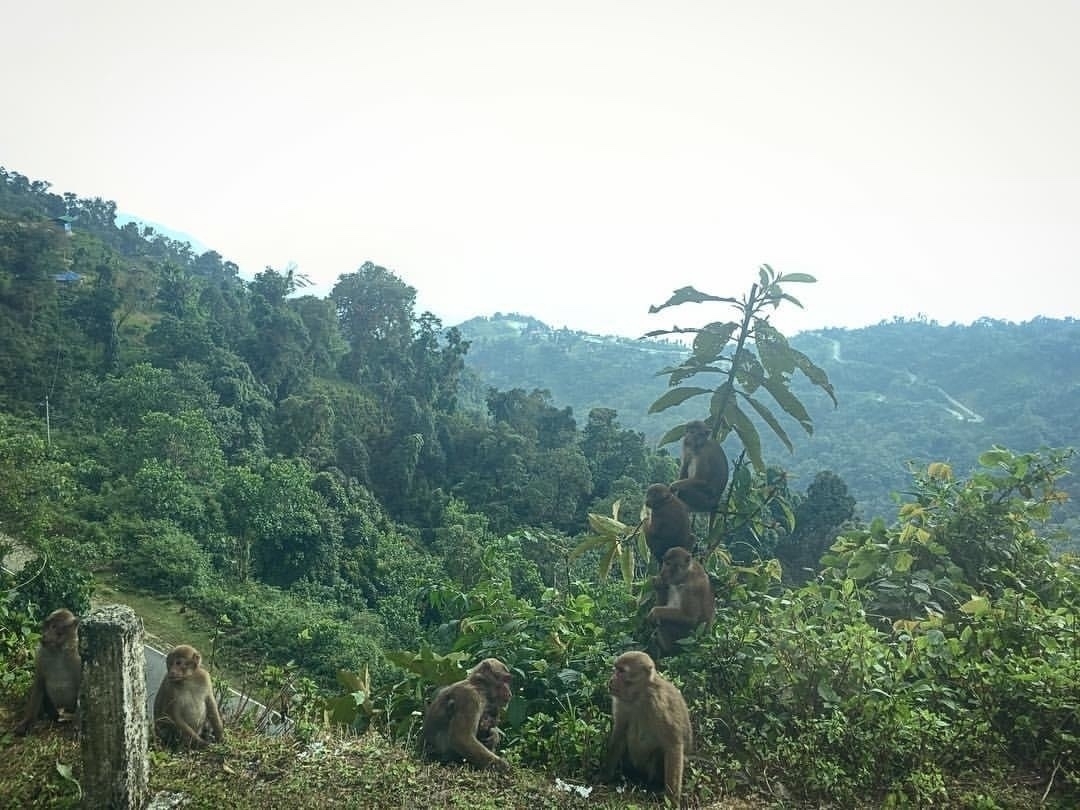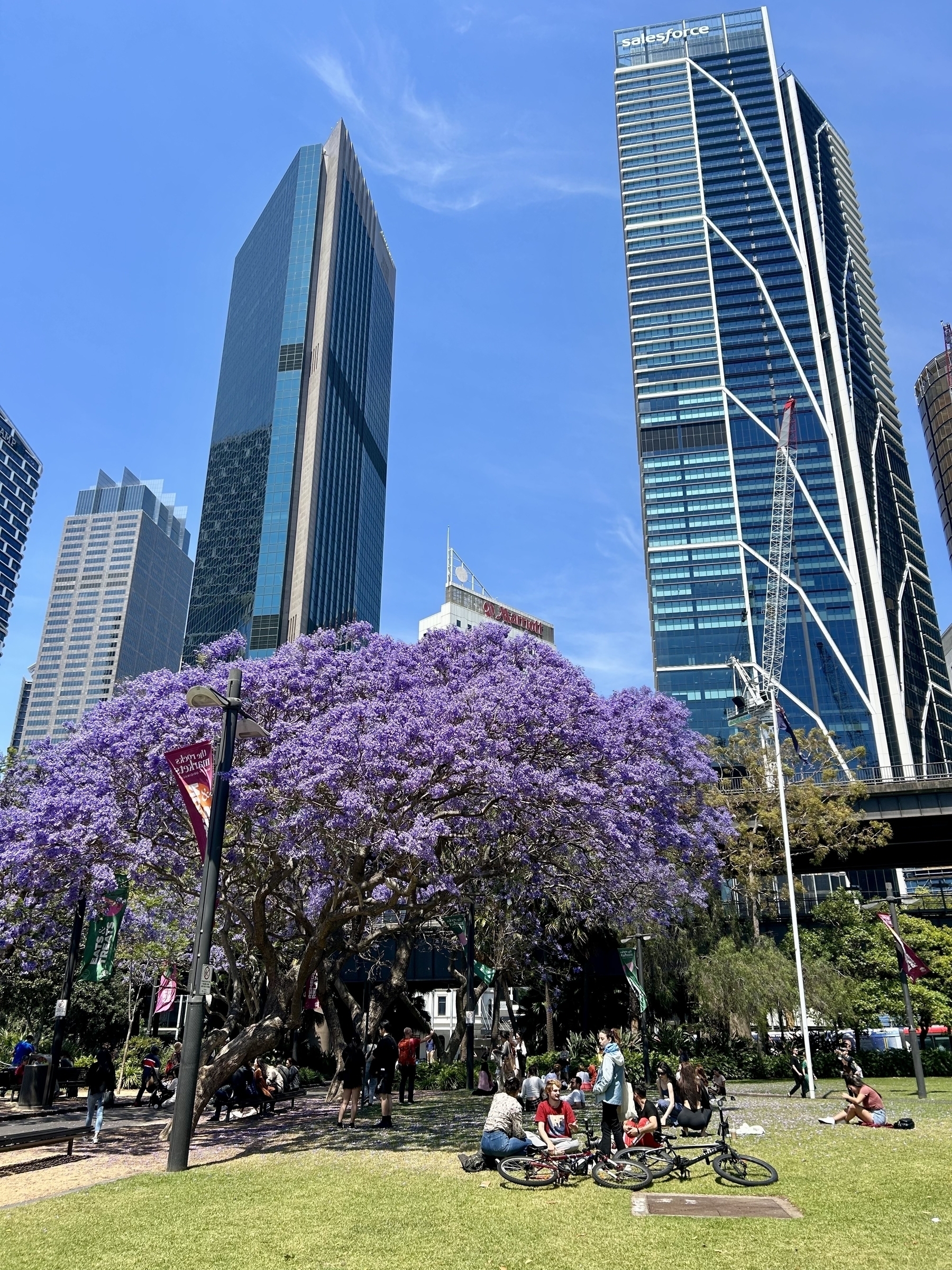Dialogue and friendship in Jaffa in a time of war
People say to me, ‘You have to be realistic, you’re dreaming of peace, and you’re dreaming of collaboration between Arabs and Jews, but you’re not realistic,’” she said while slapping a sticker on a lamppost. “People just lost faith.”
The night’s ringleader is Yeheli Cialic, 23, a Jewish Israeli who grew up in a “mainstream family” but now describes himself as a communist and an “anti-Zionist.” He says helping Arabs negotiate the institutionalized prejudice they face in Israel is the civil guard’s priority.
This feeling of anti-Arab discrimination has only grown under the successive governments of Prime Minister Benjamin Netanyahu. And since the attacks, advocacy groups say Israeli authorities have eroded free speech by treating many expressions of Palestinian solidarity as incitement…
The crew is mostly young. Among them is Amit Okin, 23, who ran away from his yeshiva and his increasingly religious family to become a self-described anarchist with safety pins in his ears and a half-shaved head.
“I didn’t understand it, I didn’t understand why we can’t love everybody,” he says, unnecessarily apologizing for his almost-perfect English. “We are always told that they hate us, so we need to hate them. I always felt something was wrong there.”
The African workers taking on Big Tech's shameful outsourced content moderation practices
The human toll of moderation of staggering - and almost all hidden so the brushed metal psychopaths of the tech industry can continue to deny their products' massive negative human toll.
Foxglove, the nonprofit supporting the moderators’ legal challenge against Meta, writes that the outcome of the case could disrupt the global content moderation outsourcing model. If the court finds that Meta is the “‘true employer’ of their content moderators in the eyes of the law,” Foxglove argues, “then they cannot hide behind middlemen like Sama or Majorel. It will be their responsibility, at last, to value and protect the workers who protect social media — and who have made tech executives their billions.”
Silicon Savanna: The workers taking on Africa’s digital sweatshops - .coda
Arundhati Roy's scathing appraisal of India's descent into fascism under Modi
The banality of evil, the normalization of evil, is now manifest in our streets, in our classrooms, in very many public spaces. The mainstream press, the hundreds of 24-hour news channels, have been harnessed to the cause of fascist majoritarianism. India’s constitution has been effectively set aside. The Indian Penal Code is being rewritten. If the current regime wins a majority in 2024, it is very likely that we will see a new constitution.
They would have known that, at the same time they were feting Modi, Muslims were fleeing a small town in Uttarakhand in northern India after Hindu extremists affiliated with the BJP marked x’s on their doors and told them to leave. There is open talk of a “Muslim-free” Uttarakhand. They would have known that, under Modi’s watch, the state of Manipur in India’s northeast has descended into a barbaric civil war. A form of ethnic cleansing has taken place. The Centre is complicit; the state government is partisan; the security forces are split between the police and others with no chain of command. The internet has been cut. News takes weeks to filter out.
You Mustn’t Pretend You Didn’t Know - The Los Angeles Review of Books
"Academics need to think harder about the purpose of their disciplines and whether some of those should come to an end"
We believe the time has come for scholars across fields to reorient their work around the question of ‘ends’. This need not mean acquiescence to the logics of either economic utilitarianism or partisan fealty that have already proved so damaging to 21st-century institutions. But avoiding the question will not solve the problem. If we want the university to remain a viable space for knowledge production, then scholars across disciplines must be able to identify the goal of their work – in part to advance the Enlightenment project of ‘useful knowledge’ and in part to defend themselves from public and political mischaracterisation.
New Zealand city terrorised by Céline Dion ‘speaker battles’ 📢
A small city in New Zealand plagued by “siren battles” – cars decked out in loudspeakers commonly used in emergency warning systems and often blaring Céline Dion hits – is calling on authorities to step in and end the noise.
The battles are part of a New Zealand subculture where music enthusiasts cover their cars in up to dozens of industrial speakers, loudhailers and sirens, then compete to have the loudest and clearest sounds.
Siren kings: New Zealand city terrorised by Céline Dion ‘speaker battles’

I’ve seen some sick stuff online but… “Lately I’ve met adolescents — some who don’t yet meet the platform’s minimum-age requirement of 16 — who say LinkedIn is their happy place."
The heart of the nation is still here. It always was and it always will be, waiting to be recognised by our fellow Australians.
In 2017, we were almost 4 per cent of the population calling for Voice, Treaty and Truth-Telling. As of Saturday, we are nearly 40 per cent, walking together. Almost seven million Australians voted “Yes”. Both major parties would kill for a first preference vote like that.
Probably the most important analysis from the referendum was that polling booths in predominantly Indigenous communities across the entirety of the country overwhelmingly voted “Yes”. We have thoroughly established that this is fact: a great majority of Indigenous people support constitutional recognition through a Voice to Parliament. We seek self-determination over who speaks for us. Claims otherwise are an incontrovertible lie.
Robot Teachers, Racist Algorithms, and Disaster Pedagogy
I tweeted in response to the homework algorithm “hack” that if it’s not worth a teacher reading the assignment/assessment, then it’s not worth the student writing it. That robot grading is degrading. I believe that firmly. (Again, think of that Gates grant. Who has a teacher or peer read their paper, and who gets a robot?) Almost a thousand people responded to my tweet, most agreeing with the sentiment. But a few people said that robot grading was fine, particularly for math and that soon enough it would work in the humanities too.
We are all more than we seem: the unexpected death - and life - of Atilla Demirer
A good piece of journalism by Mostafa Rachwani:
Upon hearing my explanation that the story is about loneliness, one of the staff members scoffs.
“Atilla was many things, but he was not lonely. He was a legend, funniest guy you’ll ever meet,” he says.
Atilla died alone, and seemed to have no family. But a sex shop told a surprisingly different story
Neanderthals were the dominant hominims from roughly 400,000 years ago until 40,000 years ago - and we're changing how we think about them
scientists appear to be divided between those who think Neanderthal dignity calls for a recognition of their similarity to us, and those who think it calls for a recognition of their difference. It is striking that the camps are of one mind in thinking that dignity – or respect or something of that kind – is owed here, and that fact itself needs an explanation.
Justice for Neanderthals! What the debate about our long-dead cousins reveals about us
Cixin Liu's Dark Forest trilogy and their elaborate defence of authoritarianism
A great aacademic article that articulates clearly many of the reasons I don’t like Cixin Liu’s Dark Forest trilogy. The politics espoused in them is dehumanising garbage.
If you have trouble accessing the article please let me know.
I have been arguing that Liu’s novels, which precisely imagine the common enemy for humanity that Schmitt could not, show how the urge to accept violent conflict as the essence of political life quickly gives way to dehumanization and an absolute, unfettered destruction. Whereas the Holocaust may have finally moderated some of Schmitt’s faith in agonism, Liu adopted such historical violence as the motivating cause for his characters to embrace existential conflict. Ken Liu, the preeminent translator responsible for two volumes of the Remembrance trilogy, remarked in an interview that there were only “two historical events Liu Cixin could think of that would cause somebody to be so utterly disappointed by human nature that Ye’s willing to trust a higher power from outside to redeem humanity: The Holocaust and the Cultural Revolution” (Pandell)…
Liu’s choices in characterization would be shortcomings in a realist novel; for this science fiction trilogy, however, his sacrifice of deliberative planning and emotional appeal for raw decisions serves to discredit liberal values in favor of “totalitarian” order, an aesthetic politics defined—as it was for Schmitt—by a core belief in existential antagonism. Later in the narrative, officials interrogate a crew member from another vessel that had been isolated in space. He explains that, once their connection to Earth was severed, “I gave up my individual self. My existence would be meaningful only if the collective survived” (Death’s 113). In a striking passage, he compares this shift to the famous “Third Wave” experiment of 1967, in which a high school teacher from California showed that it took his students only five days to embrace authoritarian rule (114). When trapped in space, the crewman insists, “we formed a totalitarian state as well. Do you know how long it took? Five minutes” (114)…
Liu’s novels do not merely thematize authoritarian ideas; his aesthetic choices and cosmological premises serve to make this drift toward centralized political power appear necessary to characters and readers alike.
"They took our place on earth": How the United Kingdom is still screwing over the Chagossians
The United Kingdom, which oversaw Chagos — sometimes called the British Indian Ocean Territory or BIOT — had secured the land for the base in 1965, just as the U.S. was in the midst of a Cold War drive to expand its military presence in strategic locations. Leasing Diego Garcia to the U.S. took the heat off after London’s refusal to commit troops to the Vietnam War effort and came with a discount on much-needed Polaris missiles for the U.K.’s own arsenal. But to build the base, first the roughly 1,500 residents of the island, Nellan’s grandparents included, would need to be relocated. It was a brutal, untidy affair.
A Tiny Archipelago in the Indian Ocean Is at the Heart of a Major Political Struggle
Our Frasier Remake
Jacob Reed asked 130 artists and animators to create scenes from the season 1 finale of Frasier My Coffee with Niles in different styles. The results are sublime.






